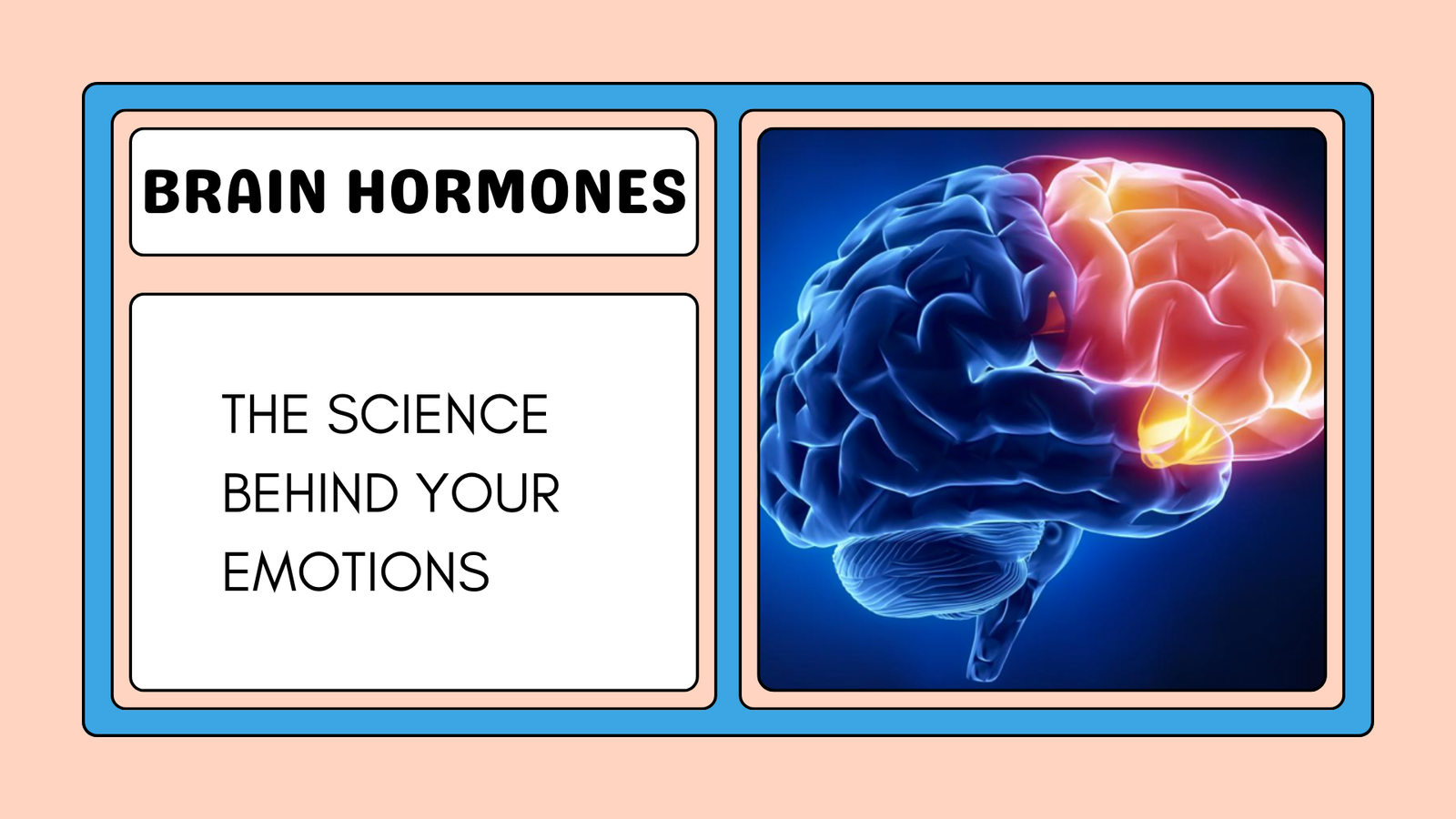Hormones play a vital role in how our brains communicate with the rest of our bodies. These tiny chemical messengers influence everything from our energy levels and sex drive to our emotions and mood. Understanding brain hormones can help us grasp the science behind our feelings and behaviors.
The Power of Hormones:
Hormones are not just simple chemicals, they have a profound impact on our daily lives. They can increase or decrease our energy levels, affect our appetite, and even control our emotional states. Here, we’ll explore some key brain hormones and their effects on our emotions.
Dopamine: The Pleasure Hormone:
Dopamine is often referred to as the “feel-good” hormone. It is associated with pleasure, reward, and motivation. Research shows that dopamine levels can significantly influence our work ethic and drive. For instance, studies with rats demonstrated that those with higher dopamine levels were more likely to overcome obstacles to reach a reward. A dopamine deficiency can lead to slow movements and a lack of motivation, while excess levels may result in repetitive movements or tics. To boost dopamine, consider incorporating foods like fish, chicken, eggs, nuts, and beans into your diet.
Serotonin: The Happiness Hormone:
Serotonin is known as the “happiness hormone,” with about 90% of it found in our intestines. It plays a crucial role in mood regulation, appetite, and even memory. A balanced level of serotonin contributes to feelings of well-being, while a deficiency can lead to anxiety, depression, and obsessive behaviors. To enhance serotonin production, consume carbohydrates like bananas and yogurt, and try to get more sunlight for vitamin D synthesis.
Oxytocin: The Love Hormone:
Often called the “love hormone,” oxytocin is released during physical touch and bonding experiences. It fosters feelings of love, trust, and connection, making it essential for healthy relationships. Low levels of oxytocin can lead to feelings of loneliness and stress. To increase oxytocin, engage in physical touch, such as hugging friends or getting a massage.
Melatonin: The Sleep Hormone:
Melatonin is crucial for regulating our sleep-wake cycle. It signals to our body when it’s time to sleep, peaking in production during the night. A melatonin deficiency can lead to sleep disturbances and various health issues. To promote melatonin production, limit exposure to blue light from screens before bedtime, and consider consuming melatonin-rich foods like cherries.
Endorphins: The Natural Painkillers:
Endorphins are the body’s natural painkillers, released in response to stress or pain. They help reduce the perception of pain and can create feelings of euphoria, often referred to as the “runner’s high.” Low levels of endorphins can lead to increased sensitivity to pain and emotional distress. To boost endorphin levels, engage in regular exercise, listen to music, and enjoy dark chocolate.
Adrenaline and Norepinephrine: The Stress Hormones:
Adrenaline (epinephrine) and norepinephrine are hormones that prepare the body for stressful situations, triggering the “fight or flight” response. They increase heart rate, blood pressure, and energy levels, helping us respond quickly to danger. While these hormones are essential for survival, chronic stress can lead to imbalances that affect mental health. To manage stress and support healthy levels of these hormones, consider regular physical activity and relaxation techniques.
Conclusion:
Understanding brain hormones and their effects on our emotions can empower us to make healthier choices. By recognizing how these hormones influence our feelings and behaviors, we can take steps to enhance our emotional well-being. Whether through diet, physical activity, or social connections, we have the ability to positively impact our brain chemistry and overall mental health.
FAQs:
1. What are brain hormones?
Brain hormones are chemical messengers that influence various bodily functions, including mood, energy levels, and emotional responses.
2. How does dopamine affect motivation?
Dopamine is linked to pleasure and reward, motivating us to pursue goals and complete tasks. Low levels can lead to decreased motivation.
3. What role does serotonin play in mood regulation?
Serotonin helps regulate mood, appetite, and sleep. Balanced levels contribute to feelings of happiness, while low levels can lead to anxiety and depression.
4. What is oxytocin known for?
Oxytocin is known as the “love hormone” and is released during physical touch, promoting feelings of love, trust, and connection.
5. How can I boost my melatonin levels?
To boost melatonin, limit blue light exposure before bedtime, create a dark sleeping environment, and consume melatonin-rich foods like cherries.
6. What are endorphins, and how do they affect mood?
Endorphins are natural painkillers that can create feelings of euphoria. They are released during exercise and can help improve.
